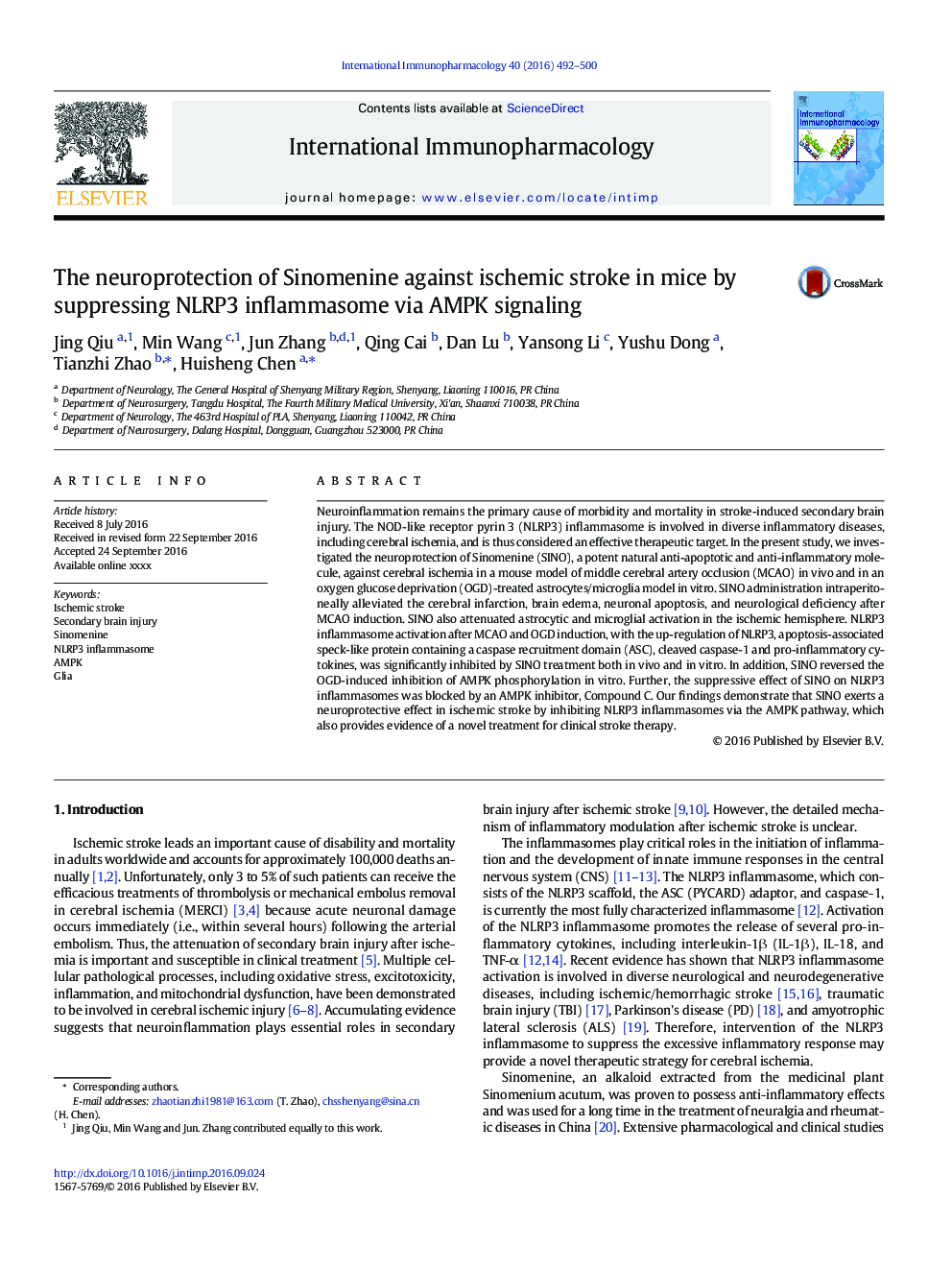| Article ID | Journal | Published Year | Pages | File Type |
|---|---|---|---|---|
| 8531741 | International Immunopharmacology | 2016 | 9 Pages |
Abstract
Neuroinflammation remains the primary cause of morbidity and mortality in stroke-induced secondary brain injury. The NOD-like receptor pyrin 3 (NLRP3) inflammasome is involved in diverse inflammatory diseases, including cerebral ischemia, and is thus considered an effective therapeutic target. In the present study, we investigated the neuroprotection of Sinomenine (SINO), a potent natural anti-apoptotic and anti-inflammatory molecule, against cerebral ischemia in a mouse model of middle cerebral artery occlusion (MCAO) in vivo and in an oxygen glucose deprivation (OGD)-treated astrocytes/microglia model in vitro. SINO administration intraperitoneally alleviated the cerebral infarction, brain edema, neuronal apoptosis, and neurological deficiency after MCAO induction. SINO also attenuated astrocytic and microglial activation in the ischemic hemisphere. NLRP3 inflammasome activation after MCAO and OGD induction, with the up-regulation of NLRP3, apoptosis-associated speck-like protein containing a caspase recruitment domain (ASC), cleaved caspase-1 and pro-inflammatory cytokines, was significantly inhibited by SINO treatment both in vivo and in vitro. In addition, SINO reversed the OGD-induced inhibition of AMPK phosphorylation in vitro. Further, the suppressive effect of SINO on NLRP3 inflammasomes was blocked by an AMPK inhibitor, Compound C. Our findings demonstrate that SINO exerts a neuroprotective effect in ischemic stroke by inhibiting NLRP3 inflammasomes via the AMPK pathway, which also provides evidence of a novel treatment for clinical stroke therapy.71
Related Topics
Life Sciences
Immunology and Microbiology
Immunology
Authors
Jing Qiu, Min Wang, Jun Zhang, Qing Cai, Dan Lu, Yansong Li, Yushu Dong, Tianzhi Zhao, Huisheng Chen,
